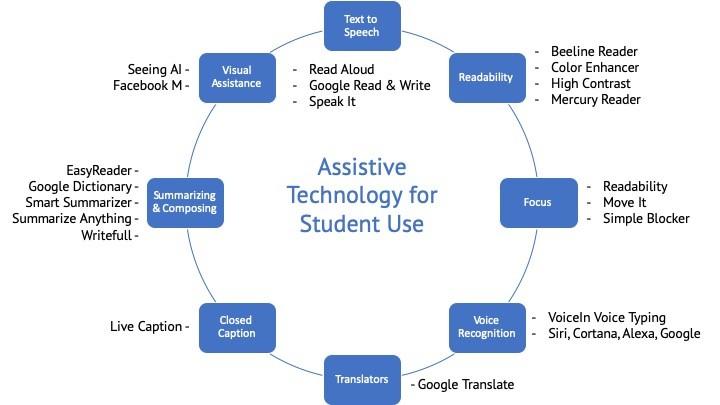Top Ethical Considerations in AI-Driven Learning: Navigating the Future of Education Responsibly
Introduction
Artificial Intelligence (AI) is rapidly transforming the educational landscape, enhancing personalized learning, automating administrative tasks, and broadening access to quality education. However, as AI-driven learning platforms become increasingly prevalent, concerns about ethics in artificial intelligence have come to the forefront. Navigating the future of education responsibly means understanding the ethical implications of AI in schools, universities, and online learning environments. In this thorough guide, we’ll explore the top ethical considerations in AI-driven learning and provide actionable insights to ensure the responsible and equitable use of AI in education.
Benefits of AI-driven Learning
- Personalized learning Pathways: AI tailors educational content to meet individual student needs, boosting engagement and outcomes.
- Efficient Administrative Processes: Automating routine tasks allows teachers to focus on teaching rather than paperwork.
- Data-Driven Insights: AI offers real-time analytics, helping educators identify early signs of struggle and intervene proactively.
- Increased Accessibility: AI-driven tools support learners with disabilities and those in remote or underserved areas.
While these benefits are driving adoption, it’s imperative that we balance innovation with ethical responsibility to prevent unintended negative consequences.
Top Ethical Considerations in AI-Driven Learning
As educators and policymakers integrate more AI tools into learning environments, several ethical dilemmas arise. Below are the most critical concerns to address:
-
1. Data Privacy and Security
AI in education relies heavily on collecting and analyzing student data, raising pressing concerns about data privacy and student information security.
- Openness: Students and families should understand what data is collected, how it is used, and who can access it.
- Consent: Institutions must obtain explicit consent, especially when dealing with minors.
- Protection Measures: Use robust encryption, anonymization, and secure storage to safeguard sensitive data against breaches.
-
2. Algorithmic Bias and Fairness
Algorithmic bias can perpetuate or even amplify existing inequalities in education. If AI systems are trained on biased data, they may produce unfair outcomes—impacting grading, admissions, or access to support resources.
- Regularly audit AI models for biases.
- Involve diverse developers and stakeholders in designing AI tools.
- Publish transparency reports detailing how algorithms make decisions.
-
3. Teacher Autonomy and the Human touch
While AI can support educators, over-reliance risks reducing teacher autonomy and diminishing the human touch essential for social and emotional learning.
- Ensure AI augments rather than replaces human instruction.
- Involve teachers in selecting and deploying AI tools.
- Offer professional growth on ethical AI integration.
-
4. Student Agency and Consent
Ethical AI-driven learning emphasizes student agency,allowing learners to make choices about their data and learning paths.
- Offer opt-out policies and explain AI interventions clearly.
- Involve students in discussions about responsible AI use.
-
5. Equity in access to AI Tools
The digital divide remains a notable barrier. Not all students and schools have equal access to AI-powered learning platforms.
- Prioritize funding and initiatives for underserved communities.
- Design lightweight,device-friendly AI applications.
-
6. Intellectual Property rights
As AI generates content and interacts with students, concerns arise over intellectual property ownership—both for AI-created materials and student work analyzed by AI.
- Clearly define ownership and sharing rights in user agreements.
- Uphold academic honesty and originality.
Future Trends in Ethical AI for Education
The evolution of AI in educational settings calls for proactive strategies to address new ethical challenges. Some emerging trends include:
- Explainable AI (XAI): Tools that make AI decision-making more transparent and understandable to educators and learners.
- AI Literacy: Integrating ethical and practical AI education into school curricula.
- Collaborative Standard-Setting: Partnerships between educators, technologists, and policymakers to draft clear standards for responsible AI use.
Case Studies: Ethical AI Implementations in Education
Case Study 1: Bias Detection in Admission Algorithms
A large university adopted an AI-powered admissions platform. Initial results showed disproportionate acceptance rates across demographic groups. After a public audit,the institution engaged third-party experts to revise algorithms and improve outcome equality. The process highlighted the need for ongoing oversight and stakeholder involvement.
Case Study 2: Privacy by Design in K-12 Learning apps
A K-12 school district partnered with an edtech firm to deploy AI-based personalized learning apps. Careful attention was paid to parental consent forms, anonymized data collection, and compliance with data privacy legislation. Transparency dashboards helped families monitor how their children’s data was used, building trust and accountability.
Practical Tips: Navigating AI Ethics in Education
- Conduct Ethical Impact assessments: evaluate the potential effects of each AI request before scaling.
- Involve Stakeholders: Engage educators, students, parents, and community members in planning AI deployments.
- Stay Updated on Best Practices: Follow guidelines set by educational bodies and trusted organizations such as UNESCO and the IEEE.
- Foster a Culture of Accountability: Assign clear roles for monitoring ethical AI use and handling breaches.
- Promote Digital Literacy: Educate all users—students, teachers, and administrators—about responsible AI interaction.
Conclusion
The integration of artificial intelligence in education brings immense promise,from more tailored learning experiences to greater efficiencies. Though, educational institutions, edtech developers, and policymakers must focus on ethical considerations in AI-driven learning to ensure that these technologies serve all learners equitably, transparently, and safely. By prioritizing data privacy,algorithmic fairness,transparency,and student agency,we can harness the power of AI to build a brighter,more inclusive future for education. Ethical AI is not just a technical necessity—it’s a moral imperative as we navigate the future of learning.

